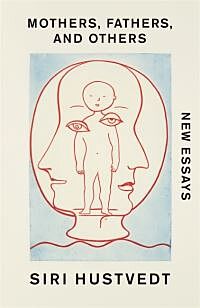- Format: Pocket
- Språk: Engelsk
- Forlag/Utgiver: SD Books
- Nivå: Voksen
- EAN: 9781529376654
- Kom i salg: 3. des. 2021
- Utgivelsesår: 2021
- Bidragsyter: Hustvedt, Siri
- Emnekategori: Filosofi, Kunsthistorie, Litterære essay, Memoarer
229,-
'It is Hustvedt's gift to write with exemplary clarity of what is by necessity unclear.' Hilary Mantel, Guardian
Feminist philosophy meets family memoir in a fresh essay collection by the award-winning essayist and novelist Siri Hustvedt, author of the bestselling What I Loved and Booker Prize-longlisted The Blazing World.
Siri Hustvedt's relentlessly curious mind and expansive intellect are on full display in this stunning new collection of essays, whose subjects range from the nature of memory and time to what we inherit from our parents, the power of art during tragedy, misogyny, motherhood, neuroscience, and the books we turn to during a pandemic. Drawing on family history as well as her own life and experiences, she examines the porousness of borders of all kinds in a masterful intellectual journey that is at once personal and universal. Ultimately, Mothers, Fathers, and Others reminds us that the boundaries we take for granted-between ourselves and others, between art and viewer-are far less stable than we imagine.
Feminist philosophy meets family memoir in a fresh essay collection by the award-winning essayist and novelist Siri Hustvedt, author of the bestselling What I Loved and Booker Prize-longlisted The Blazing World.
Siri Hustvedt's relentlessly curious mind and expansive intellect are on full display in this stunning new collection of essays, whose subjects range from the nature of memory and time to what we inherit from our parents, the power of art during tragedy, misogyny, motherhood, neuroscience, and the books we turn to during a pandemic. Drawing on family history as well as her own life and experiences, she examines the porousness of borders of all kinds in a masterful intellectual journey that is at once personal and universal. Ultimately, Mothers, Fathers, and Others reminds us that the boundaries we take for granted-between ourselves and others, between art and viewer-are far less stable than we imagine.


